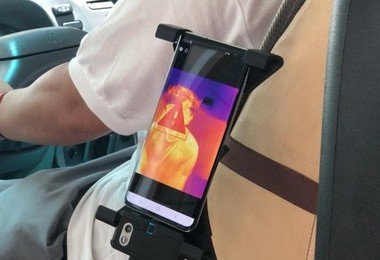KE Spotlight
Filter
-

HKU Engineering explores an innovative approach of using AI to reduce energy consumption in chiller plant optimization
The project led by Professor Christopher Chao, Dean of Engineering and Chair Professor of Mechanical Engineering at The University of Hong Kong (HKU), explored an innovative approach to optimize the performance of chiller plant in heating, ventilation and air conditioning (HVAC) system for energy consumption reduction. According to the Hong Kong Energy End-use Data 2020 report published by Electrical and Mechanical Services Department (EMSD), space conditioning accounted for the largest percentage of 18% and 32% in total energy consumption and electricity consumption by end-use, respectively, in 2018. The energy usage related to HVAC system raised rapidly by approximately 15% by 2018 from 2008. To improve the performance of chiller plants, a predictive operational control strategy was developed for chiller plants by employing artificial intelligence technology and big data analysis without any additional equipment installation. Artificial neural network (ANN) was employed to predict the future trend, while particle swarm optimization (PSO) was applied to search for the optimized setpoints for the chiller plants. The implementation of artificial intelligence (AI) in chiller plant can enhance overall energy efficiency, reduce energy usage and improve maintenance practice of the HVAC system, as well as mitigating carbon emission by HVAC system.
Read More -
Faculty Knowledge Exchange Awards 2020
The annual Faculty Knowledge Exchange (KE) Awards recognise each Faculty’s outstanding KE accomplishment that has made demonstrable economic, social or cultural impacts to benefit the community, business/industry, or partner organisations. Results of the 2020 Faculty KE Awards are now available.
Read More -

HKU engineering team develops handy and low-cost thermography fever detection system for public transportations
A multidisciplinary group of researchers from the Departments of Mechanical Engineering and Computer Sciences led by Dr Fu Sau-chung, Research Assistant Professor of the HKU Department of Mechanical Engineering, has recently explored a low-cost thermography fever detection system which is portable and can be easily accessed and mastered by users. The thermal camera plugin in the current prototype is a commercial product which costs around HK$3,000 per set and this accounts for most of the hardware cost. As compared to other similar systems in the market, the total cost of the current prototype is far lower and the system is more handy. Multiple trials have been conducted at the HKU campus since early May. The research team hopes that this portable thermography fever detection system can be applied in public transportation, such as taxis, shuttle buses and minibuses commonly in the future.
Read More -

iPark: Core Technologies of Intelligent E-Commerce Logistics Parks
E-Commerce has developed exponentially in the Greater China region in recent years, while logistics, which deliver the orders, have become bottlenecked. Traditional logistics operations are no longer able to cope with the challenges, such as long order fulfillment time and low utilization in space, under fluctuating huge demands. Led by Professor Guo Quan Huang of the Department of Industrial and Manufacturing Systems Engineering, iPark is expected to elevate the logistics services to match the growth of E-Commerce.
The project is delivered in two forms. One is a private form for leading enterprises with operations in the Greater China Region. The other is a public platform that is shared by participating Hong Kong SMEs involved in Ecommerce logistics. Eventually, the platform will be “transplanted” to logistics and industrial parks.
Read More -

HKU Engineering VAYU Project sets new Guinness World Record for “The Fastest 50m Swim by a Robotic Fish”
Supported by the Tam Wing Fan Innovation Wing, a VAYU robotic fish project developed by a student team from the Faculty of Engineering at the University of Hong Kong set the Guinness World Record of 26.79s for “The Fastest 50m Swim by a Robotic Fish” on January 23, 2020. Compared with the world records set by human swimmers in long course swimming pools ratified by International Swimming Federation (FINA), the robotic fish swim faster than women in breaststroke (29.40s) and backstroke (26.98s). Led by the Department of Mechanical Engineering, the VAYU Project is a joint effort with the Departments of Electrical & Electronic Engineering and Computer Science of the Faculty of Engineering. More than 40 students contributed to the project over four years.
Read More

